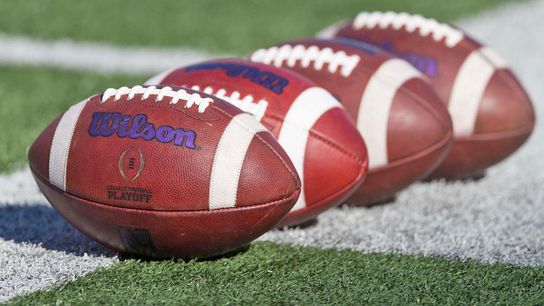Attorneys representing the plaintiffs in the House settlement and attorneys for the power conferences have reached an agreement that will, in effect, lead the College Sports Commission to back off on striking down deals with athletes, according to multiple reports on Tuesday.
Back on July 10, the CSC issued a guidance that said booster-run collectives did not satisfy its terms as a "valid business purpose." This meant that, in layman's terms, a collective could work as a marketing arm to facilitate a deal between Athlete A and Business Z, but Athlete A could not enter into a deal with a collective itself -- even if that collected operated as a business by selling T-shirts and hats to the public or producing a podcast. This was, needless to say, a shock to the system, because collective pay served as the backbone of the NIL system. Very few athletes were paid by the likes of Dr Pepper or Adidas, but thousands received money to sell their NIL rights to their own collective. According to the firm Opendorse, collective pay rose from $321 million in 2021-22 to more than $900 million by 2022-23.
“All of their (athletes’) deals are getting shut down by NIL Go,” a source at a collective told The Athletic. “Even deals of $5,000 or less.”
The Collective Association threatened to sue, since the CSC and its NIL Go system were threatening to put them out of business. This exchange from Utah AD Mark Harlan explained the thinking of the CSC and those behind it.
Maybe this is just me, but has this group been under a rock? Makes me appreciate the team at the Crimson Collective who knew that after the settlement agreement, the game charged. True NIL….not that hard https://t.co/jI2pZIuTgp
— Mark Harlan (@MarkHarlan_AD) July 10, 2025
Now, to use Harlan's term, the game is set to change yet again, back to the old one. As Yahoo explained Tuesday:
The change to the valid business purpose standard potentially opens the door for the continuation of school-affiliated, booster-backed collectives to provide athletes with compensation that, if approved by the clearinghouse, does not count against a school’s House settlement revenue-share cap. This provides collectives a path to strike deals with athletes as long as those transactions deliver to the public goods and services for a profit for the organization, such as holding athlete merchandise sales, autograph signings and athlete appearances at, for example, golf tournaments.
Collectives are still tied to the CSC's "fair market value" clause, where School C cannot pay their starting quarterback $500,000 to sign autographs if School A and School B pay theirs $5,000. But if Schools A and B also pay theirs $500,000... who's to say what fair market value really is?
That is perhaps a legal question for another day, but Tuesday's agreement indicates the power conferences admitted they were going to be sued into oblivion if collectives were no longer allowed to pay athletes.
